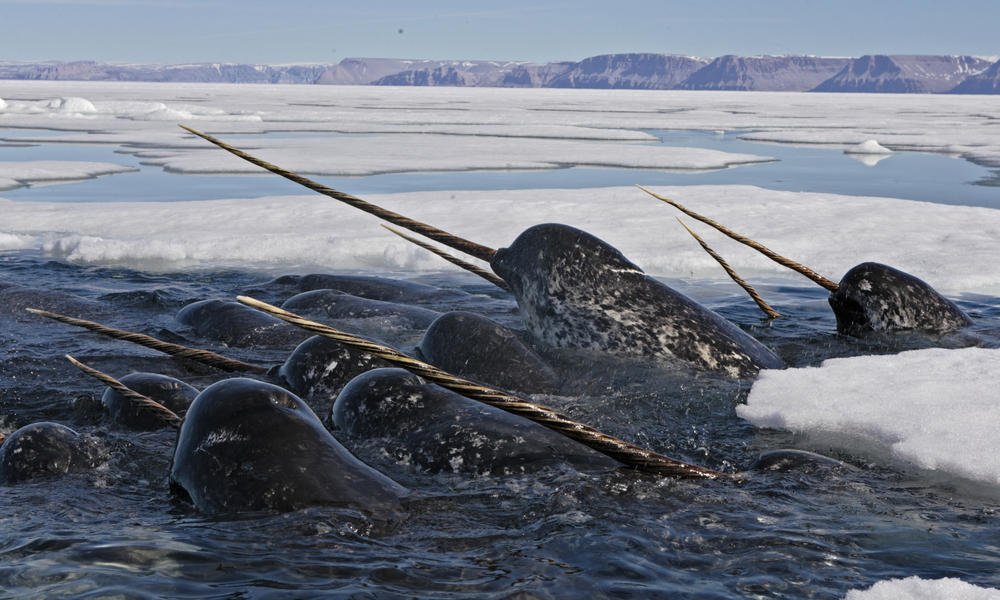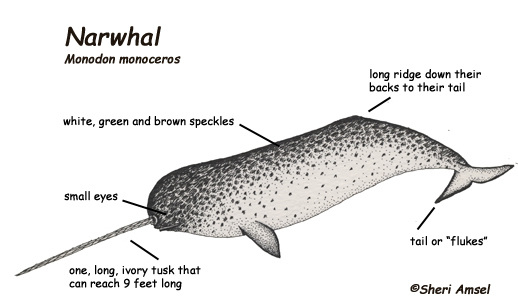 The unicorns of the sea, also known as narwhals, are majestic and graceful ocean-dwellers that have captured the love of the world.
The unicorns of the sea, also known as narwhals, are majestic and graceful ocean-dwellers that have captured the love of the world.
Narwhals (Monodon monoceros) are part of the toothed-whale family. The name narwhal means “corpse whale” in Old Norse, because of their skin color. They are related to bottlenose dolphins, belugas, and orcas.
Unfortunately, the narwhals are in danger from the worst villains possible: their own bodies!
Scientists have discovered that narwhals have a unique survival instinct that is built into their genes. This may be even more harmful as humans encroach into their homes.
About Narwhals
 It is estimated that there are 10,000 to 45,000 narwhals in the world, maybe even as many as 80,000. These pale blue and grey porpoises live in the Arctic coastal waters and in the Arctic seas.
It is estimated that there are 10,000 to 45,000 narwhals in the world, maybe even as many as 80,000. These pale blue and grey porpoises live in the Arctic coastal waters and in the Arctic seas.
One of their most prominent features is their pointy tusk, which is actually an ivory tooth. These tusks are most prominent in males, while females have smaller ones. This tusk closely resembles a mythical unicorn horn, with spirals that can grow up to 8.8 feet.
Narwhals live in very cold, icy waters and are protected by the layers of blubber underneath their skin. They spend winters in deep waters under ice, and then move to shallow ice-free waters for the summers, but never really stray far from the ice.
Unfortunately, because of global warming, there is less ice for them to live by. As ocean waters become more exposed, the narwhals are now at risk from a greater number of predators.
Risks From Humans
When narwhals sense danger and become afraid, they try to swim away quickly to escape. Unfortunately, their heart rate goes down significantly -- they don’t get enough oxygen in their blood which makes them dizzy.
So why does this happen to a narwhal? Scientists still haven’t figured that out, but they are doing extensive research by partnering with hunters to monitor the narwhals. Instead of killing the narwhals, they capture them, tag them and release them back into the sea.
The biggest risk to narwhals is from humans. When these animals sense an orca or another sea creature, they don’t feel endangered and know how to deal with the situation. But when they hear boats, humans, or machines, they panic and flee, which is highly dangerous for them. They also have to swim farther for safety with their ice sanctuaries melting.
Hopefully, we can learn more about the narwhals in time to save them from us, and themselves.







